Bulat Khanov: ‘Then Russia was learning to dream’
Writer Bulat Khanov — about the 1920s, the brightest period of Russian literature
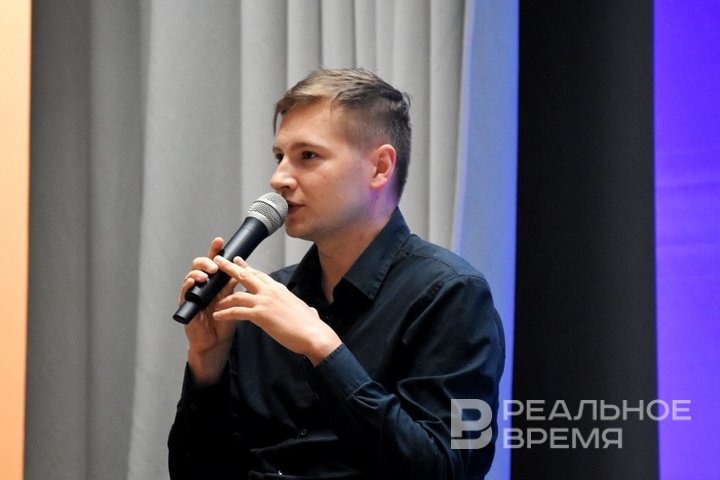
In the first quarter of the 20th century, the Civil War ended in Russia, and a new state was formed — the USSR. Some saw this as the collapse of the country, while others saw hope for a bright future. But what was going on in literature at that time? Writer Bulat Khanov believes that the 1920s were the most striking period in the history of Russian literature. He told about this at his lecture at the National Library of the Republic of Tatarstan.
The freest era?
Bulat Khanov began the lecture by stating that there was no such diversity as there was in the 1920s in the history of Russia before that, and then too. Moreover, if you look at the materials of literary critics, then, according to Khanov, they are often ideologised in nature.
“Many articles about Russian literature of the 1920s begin with that the totalitarian regime came, everything was bad, the writers were intimidated, the writers were not allowed to breathe. There are inexcusably many such articles. Because of this idea, it may seem that after the 1917 revolution, each writer had a personal commissar attached to him, who literally stood with a revolver and dictated the text or rejected unsuitable materials. And then, in Perestroika, the commissioner was suddenly removed and free publications flowed into the magazine world. In reality, this was not the case. The 1920s were one of the freest, brightest eras for the development of not only literature, but also other types of art and science. That time, Russia was learning to dream," Bulat Khanov said.

After the Civil War, the country entered a new decade with the feeling that it was building a new society, which, on the one hand, would be based on the ideals of Enlightenment, and on the other — the ideals of care and equality. It was assumed that workers and peasants would be widely represented at all levels of government and in all spheres of life. At the same time, the Soviet Union was isolated from the rest of the world, which caused problems with material security. For example, there were big problems with paper at that time. Writer Maxim Gorky complained that a campaign of eradication of illiteracy was launched, but textbooks were not provided. Then there was one textbook for 15 students.
New authors and emigrated writers
Cultural Russia was faced at that moment with another problem — the emigration of many famous writers. Moreover, they did not leave in 1917, when the revolution took place, but later, just in the 1920s. Ivan Bunin, Zinaida Gippius, Dmitry Merezhkovsky, Boris Zaitsev, Mark Aldanov, Evgeny Chirikov, Vladislav Khodasevich and many others left. In exile, they broadcast the idea that Russian culture had died in Russia and the emigrated writers would try to preserve its islands in France, Germany, and the USA.
“I think this position is a little arrogant. History shows that culture cannot survive in a confined space, in such a cultural ghetto. And how it can disappear from the place where it historically lived," Khanov added.
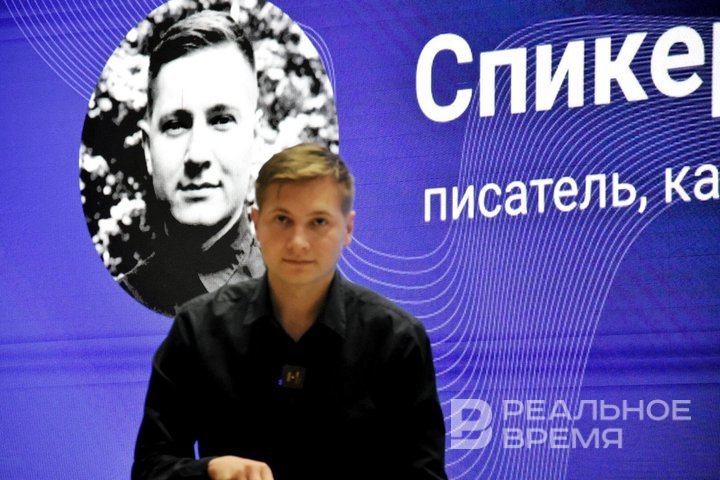
They decided to replace the authors who left the country with new ones. To do this, many literary figures set out to create new literature. Khanov said that a lot of myths also came from here, allegedly this new literature was created by the ruling party in order to control people of art. According to Bulat Khanov, some party figures did speak out about literature. These were Lenin, Trotsky and Lunacharsky.
“Of course, they wanted literary works to glorify the new Russia and the revolution, or at least not to be hostile to it. The main thing is that they wanted the new authors to describe the current moment. But they could not force writers to write about something or interfere in their lives, because it contradicted their ideology, they could not encroach on the individual and creative freedom of the author. Then the principle of free competition was announced. If possible, individual authors were funded, but at a distance and without direct directives," explained Bulat Khanov.
“Catching the epoch in all its complexity”
At this time, several spontaneous movements arose in Russia. One of them is the Proletarian cultural and Educational Organisations, or proletkult for short. Already in 1920, there were about 400 thousand writers and poets in the proletariat, while they came up with the idea that art should be completely free from party control. People got there through sections organised in factories, plants and village clubs. Mostly there were people who had mastered literacy at least a little bit. The level of most of their works was very low.
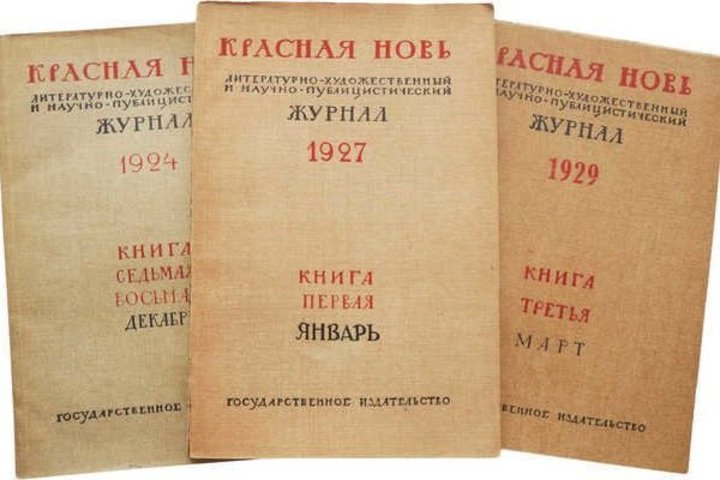
Another movement took shape in the literary group Pereval, the leader of which was critic Alexander Voronsky. He secured funding for Krasnaya Novy magazine, founded in 1921. Many significant works were published in this magazine and many famous authors of the 1920s were discovered. At that time, writers and poets were paid little. According to researchers, the author's salary was less than the salary of a laborer. That is, in the literal sense, they created for a cause. And sometimes for quite material benefits — food and clothes. Voronsky once boasted that he had found good shoes for young author Vsevolod Ivanov in exchange for a novel.
“Alexander Voronsky maintained the line according to which it is necessary to publish authors oriented towards modernity. That is, there was no requirement to glorify the Soviet Union and the party. They had to write poignant works about modernity in order to capture the era. And the view of the era was controversial. The authors tried to capture it in all its complexity, representing all groups of the population and all political and creative forces. Then the names of Boris Pilnyak and Vsevolod Ivanov stood out. They wrote about the Civil War and what really worried most of their contemporaries. In the 1920s, writers tried to show a man without embellishment, in all his controversy, fixing attention on how his ideals diverge from behaviour. Babel's cycle Konarmiya shows just such a view of man," Bulat Khanov said.
Fantastic literature and overreach
The principle of competition and free competition in literature stimulated the development of genres that had previously been either absent or on the periphery. At this time, adventurous and adventure literature and fiction became popular. It was in the 1920s that Alexei Tolstoy's work “Aelita” and “Hyperboloid of Engineer Garin” appeared, Belyaev's books “Professor Dowell's Head”, “Island of Lost Ships” and “Amphibian Man”.
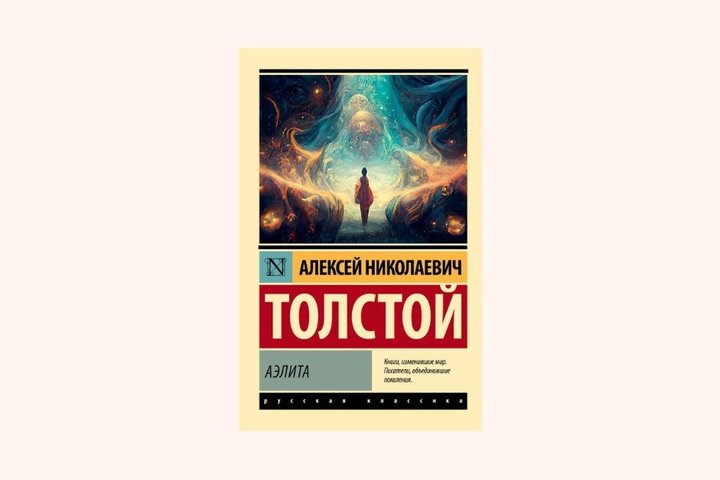
In addition, adventure literature about the Civil War appeared, which is shown through the eyes of a child. During this period, the Soviet Union literally opened childhood in literature. The idea began to strengthen in the public consciousness that childhood is an independent part of life, it should be interesting and eventful, that a child is already a person in whom the foundation of the future is laid. A wave of works for children swept literature, and the most famous among them was Pavel Blyakhin's novella “The Red Devils”, which was filmed by Ivan Perestiani in 1923. Already in the next decade, all this would die down and be revived only in the 1960s.
In the 1920s, there were some overreach. In addition to quite good works, books appeared written in a deliberately propagandistic way. In particular, the fairy tale “Cinderella”, which became “Red Cinderella”, got a new life. It has a similar plot, but events develop a little differently. Cinderella does the house work, while two sisters of bourgeois origin enjoy the fruits of her labour. Then a red agitator comes to Cinderella and tells her how to live properly. At the ball, when the prince offers Cinderella his love, the red agitator appears again, and Cinderella chooses him instead of the prince.
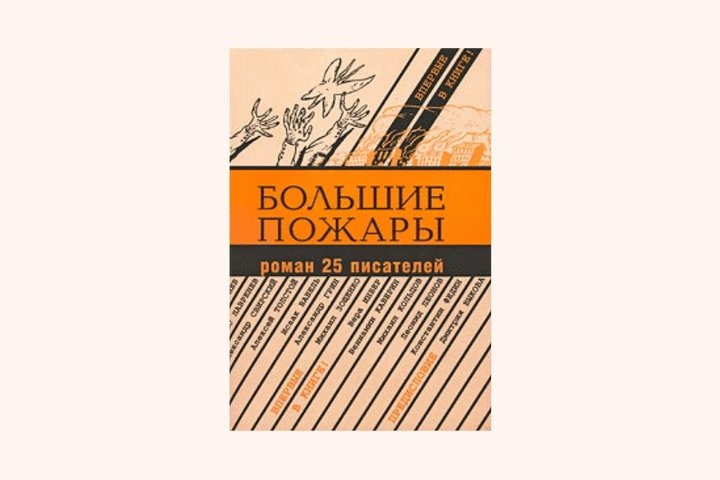
Cultural figures experimented during this period in a variety of fields, including forms of creativity. The writer Alexander Grin, known for the work “Scarlet Sails”, wrote a chapter of the book with the detective story “Big Fires”, and then passed the baton to another author, Lev Nikulin, so that he wrote a sequel. As a result, 25 authors participated in the creation of the collective novel “Big Fires”. Among them — Leonid Leonov, Isaac Babel, Boris Lavrenev, Konstantin Fedin, Alexey Tolstoy, Mikhail Zoshchenko, Veniamin Kaverin, Mikhail Koltsov.
“When literature develops freely, when there is a free embodiment of one's thoughts, then bright forms appear that are in demand by readers. Literature of the 1920s in terms of freedom, in terms of creative audacity and boldness has never received such a powerful impulse in Russia, even in the 1990s," Bulat Khanov said.
The authorities decided to mobilise writers
Another major centre of attraction, besides Krasnaya Novi, was the magazine Na Literaturnom Postu, which then changed its name and became simply Na Postu. It was headed by the RAPP. The RAPP is the Russian Association of Proletarian Writers, whose number in the mid-1920s was 2 thousand people, and in the peak period — 4 thousand participants. Among them are Alexander Fadeev, Alexander Serafimovich and the literary critic Leopold Averbach. Unlike Voronsky, the RAPP held a slightly different position with regard to literature. Of course, they also believed that it was necessary to write about modernity, but with an unequivocal recognition of the October Revolution. The RAPP believed that writers should be strictly from the working environment. At the same time, they did not say that it was necessary to embellish reality and write to please the party.
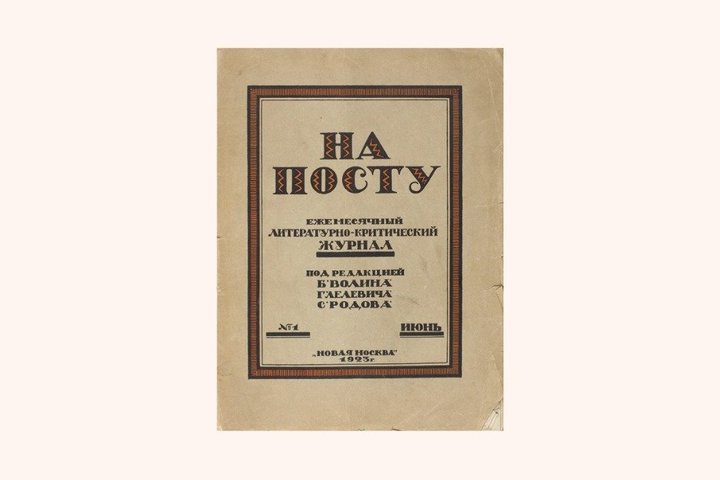
Nothing foreshadowed trouble until at the end of the 1920s they began to talk about five-year plans and industrialisation. The country needed an industrial breakthrough that would allow it to grow its economy. To achieve this goal, the authorities decided to mobilise writers.
“In 1928, the party sent a “friendly” directive to publishing houses, according to which, first of all, works should be published that glorify the work and the new Soviet man who creates. The doubts of the 1920s with contradictory characters and their experiences were no longer very necessary," said Khanov.
During this period, the RAPP enjoyed the unconditional support of the party, which became the dominant force in the literary world of the USSR. But it didn't last long either. In 1932, by decree of the Central Committee, the RAPP was disbanded in order to replace it with a single organisation — the Union of Writers of the USSR, which was established in 1934. The time of literary diversity came to an end. Now literature had to solve new problems. To do this, they raised the royalties of writers, created the village of Peredelkino, where famous authors received luxurious cottages. Writers became figures of national importance.
“But it cannot be said that all creativity has come to naught. Sholokhov wrote the topical, poignant and polemical work “The Virgin Soil Upturned”. Zoshchenko released satirical stories that critically evaluated the Soviet hotel infrastructure and medicine. But in general, that diversity, that audacity, that charge, that revolutionary romance of the 1920s is almost absent in the literature of the 1930s. And if you look at the fate of writers and literary figures of the 1920s, you can see that many of them ended their lives in 1937-1938 in an unnatural way," Bulat Khanov summed up.
Ekaterina Petrova — literary reviewer of Realnoe Vremya online newsppaer, author of Poppy Seed Muffins (Булочки с маком) telegram channel, and founder of the first online subscription book club Makulatura.